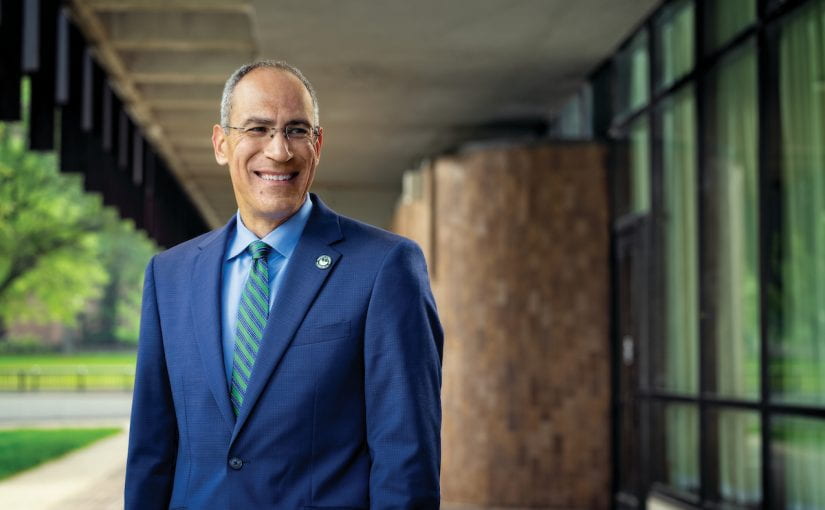Author: Kristin Bouchard
-

Barbershop, 1965, Coffeeshop Minute
By
|
The Green Bay Campus is hopping! In this week’s Minute, Mike swings by the University Union and takes in the beginning of the semester buzz. Starz Barber and Beauty’s on-campus location is open for appointments, and University Union renovations are nearing completion. Expect a fresh look in the 1965 room adjacent the newly renovated space…
-

Minute with Mike: First Day of Classes
By
|
What did you do on your first day of classes?? In this week’s Minute, Mike speaks with the UW-Green Bay students at the Photo Booth about what they are doing for their first day of school. Ice cream, friends and even attending a class! 🙂 Have a strong start to the semester – Together we…
-

Welcome to U Dub GB!
By
|
After a break for the summer, Mike is back! In this ‘Minute with Mike’ he shares his excitement for the upcoming school year. Because of a recent surge in followers on social media, he has some fun reintroducing the University with this creative video. Watch below!
-

Celebrate 2024 Minute
By
|
Mike brings the energy in this week’s Minute along with the Schreiber Institute for Women’s Leadership Executive Director, Pa Lee Moua. Learn, grow and bloom…and attend the Institute’s Celebrate 2024 event on Thursday May 16 to learn more about allyship and take action. Listen to this week’s Minute below!
-

Nursing Minute
By
|
It’s a special early edition of ‘Minute with Mike’ this week. To celebrate National Nurses Week, current nursing student, Maria, shares why she decided to become a nurse. Mike not only shares his gratitude for nursing students, but encourages us to thank everyone who takes care of us, especially nurses!
-

Commencement Minute
By
|
It’s the most wonderful time of the year! Commencement! In this week’s Minute, Mike shares his excitement for the 2024 Spring Commencement ceremonies being held on Saturday, May 11. He is joined by UW-Green Bay Signature & Cultural Events Coordinator, Nina Dessoir who shares her thoughts with the upcoming Class of 2024!
-

Beer Minute
By
|
‘Great Duos’ are on Mike’s mind in this week’s Minute as he reminds everyone of the upcoming Beer and Ballet event at The Weidner on May 4, 2024. Who would have thought beer and ballet would mix? The creative minds at The Weidner, that’s who! And what an excellent combination it is. In this week’s…
-
Message to Faculty and Staff on Thursday, April 11, 2024
By
|
Dear UW-Green Bay Faculty and Staff, Today, Deloitte’s Financial and Strategic Assessment reports will be released publicly for 7 universities. The reports discuss the economic assessment and opportunities for us as well as Oshkosh, Parkside, Platteville, River Falls, Superior, and Whitewater. Attached you will find three documents. The first talks about our current economic assessment, the second potential opportunities…
-

Design Minute
By
|
In this week’s Minute with Mike, UW-Green Bay’s Art and Design program is featured, including Assistant Professor Abbey Kleinert. She shares how students are combining art and science to develop a logo and visual identity for the NERR, and how a RISO printer technology levels-up what students can do. Listen below and check out the…
-

Art Minute
By
|
In this week’s ‘Minute,” Mike is joined by Associate Professor Minkyu Lee, advisor and former chair in UW-Green Bay’s Art Program. Students have the opportunity and are encouraged to take a dynamic approach to studio arts. Everything from painting to ceramics to jewelry-making and woodworking are there to explore. Mike speaks proudly of this exceptional…

